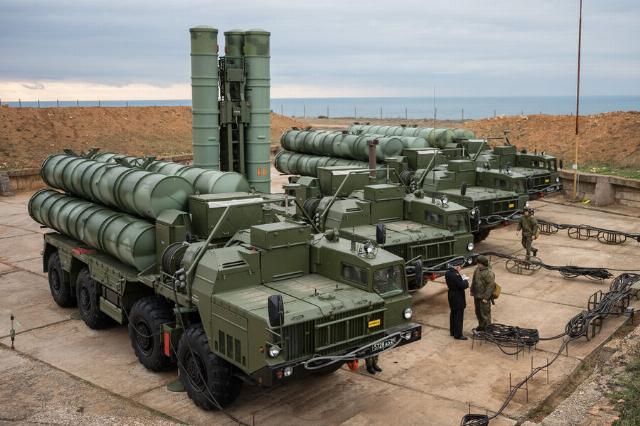The Turkish Defense Ministry has denied reports of a possible sale of the S-400 air defense system.
The Turkish Defense Ministry has denied information that Moscow is allegedly preparing to return the S-400 anti-aircraft missile systems sold to Ankara. Earlier, Turkish and American journalists reported that Russia had offered to buy back the air defense systems, which Turkey has practically not used since 2019. According to them, the Turkish side was interested in this proposal. The details are in the material of "Gazeta.Ru".
The Turkish Ministry of Defense has denied media reports that Moscow is allegedly preparing to return the S-400 anti-aircraft missile systems sold to Ankara. This was reported by the Turkish newspaper T24, as well as the Russian news agencies TASS and RIA Novosti, citing sources in the department.
"The S-400 remains in service with our armed Forces, there are no changes in the situation," the agency quoted the source as saying.
In addition, earlier reports about the alleged sale or return of Russian S-400 air defense systems by Turkey were denied by another Turkish source, RIA Novosti.
Where did the rumors come from?
On September 3, Murat Gyurgen, a columnist for the Turkish newspaper Nefres, said that Moscow intends to purchase S-400 complexes from Ankara, which Turkey does not use, and sell them to other countries.
"While the world is struggling with wars and crises, many countries interested in air defense systems have turned to Russia. However, Moscow does not have ready-made S-400s, except for those that it uses. Therefore, Russia is reportedly considering buying back the S-400 systems sold to Turkey in 2019, which Ankara does not actively use, and selling them to another country," Gyurgen wrote.
The author of the article claimed that Ankara was allegedly open to this proposal. First, as the journalist clarified, Turkey, which is developing its own Çelik Kubbe ("Steel Dome") air defense system, "sees that its need for the S-400 is falling every day."
In addition, according to the columnist, Turkey was interested in returning to the F-35 production program. Ankara was excluded from it in 2019 after the acquisition of S-400 complexes from Russia. The United States believed that Russia could use the air defense system to obtain information about the F-35.
Washington has repeatedly called on Turkey "not to abandon the S-400." So, in March 2025, the United States offered Ankara to disassemble the air defense systems in parts or transport them to the American military base Incirlik. In return, the Americans promised to provide Turkey with access to F-35 fighter jets.
On June 25, President Recep Tayyip Erdogan announced that the issue of the S-400 was closed.
"We did not discuss the S-400 at the meeting with [US President Donald] Trump. This issue is not on our agenda, it is closed. We discussed [buying] F-35 fighter jets. We paid $1.3 billion for them. We have seen that Trump has good intentions regarding our purchase of the F-35," the Turkish leader said at the time.
On July 30, U.S. Ambassador to Turkey Thomas Barrack said that Ankara and Washington could resolve the issue of Turkey's exclusion from the F-35 production program by the end of 2025. It was not reported on what conditions this would happen.
Needed for rearmament
Following Gürgen's column, Peter Suchiu, a columnist for the American magazine The National Interest, published his material on the alleged transfer of the S-400 by Turkey. In his article, he listed the same reasons why Ankara might be interested in selling the complexes.
At the same time, Suciu also suggested why Moscow might be interested in buying. The journalist claimed that the complexes were allegedly needed by the Russian Federation for rapid rearmament. He said that during the special operation, the Russian military lost several systems, and therefore "Russia needs to replenish its reserves, preventing further delays in exports."
Suciu pointed out that Moscow had already had to postpone the delivery of the S-400 to India, which Russia signed a contract with in 2018. At the same time, Alexander Mikheev, Director General of Rosoboronexport, had previously denied this information, stating that the Russian Federation was fulfilling the contract for the supply of air defense systems to India in accordance with its obligations.
Eva Vishnevskaya

